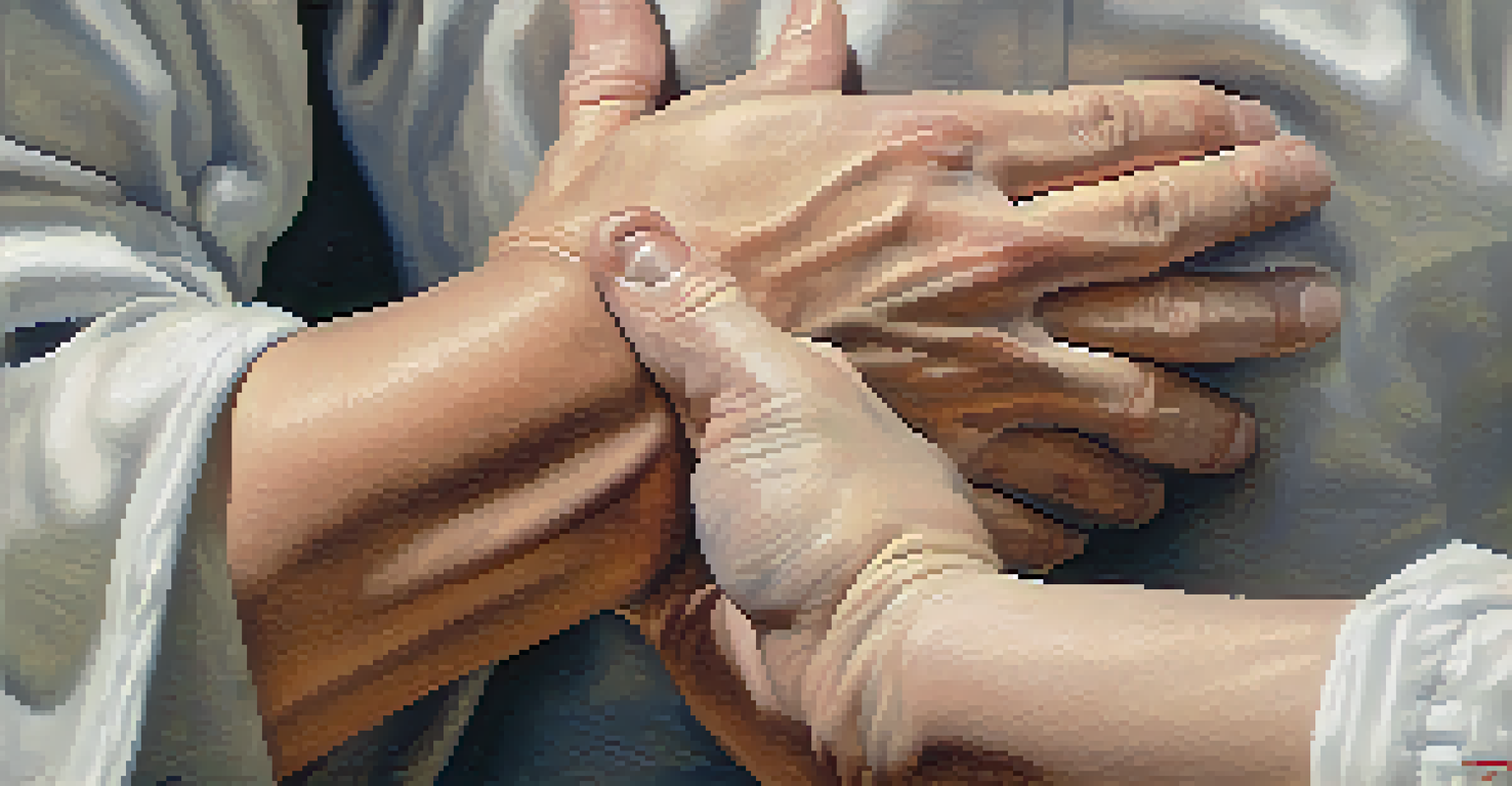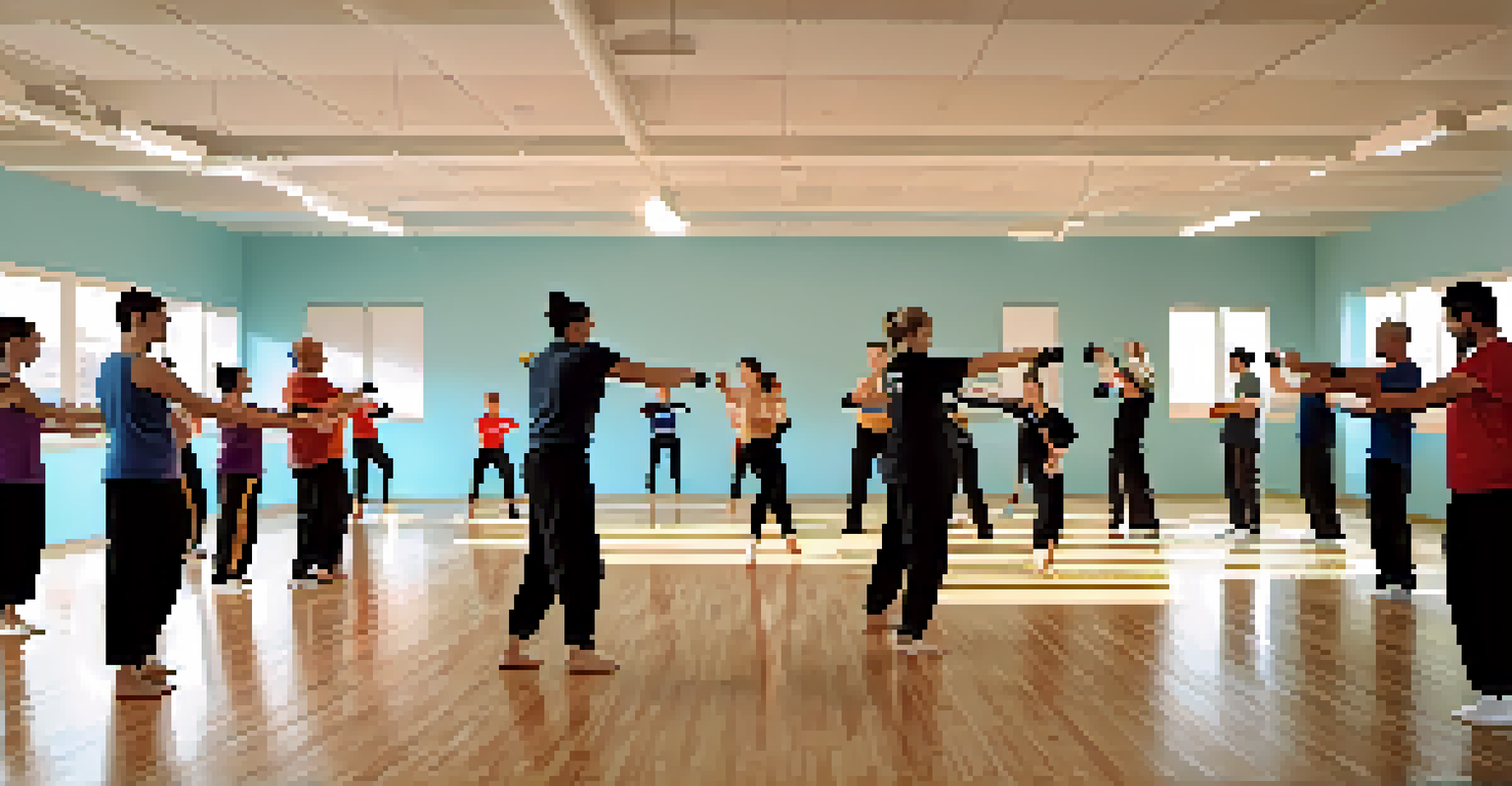Essential Self Defense Techniques for Caregivers to Learn

Understanding the Importance of Self Defense for Caregivers
Caregivers often find themselves in vulnerable situations, whether at home or in public. Understanding self-defense is crucial for ensuring both personal safety and the safety of those they care for. Learning self-defense techniques can significantly boost confidence and provide peace of mind in challenging environments.
Self-defense is not just a skill; it’s a mindset. It’s about being aware, prepared, and confident in your ability to protect yourself and others.
Moreover, caregivers frequently work with individuals who may be unpredictable due to health issues or other factors. This unpredictability can lead to situations where a caregiver might need to protect themselves or others. By being prepared and knowledgeable about self-defense, caregivers can navigate these scenarios with greater assurance.
Ultimately, self-defense training is not just about physical skills; it's also about mental fortitude. Knowing how to react quickly and effectively in a threatening situation can make all the difference in keeping both caregivers and their clients safe.
Basic Stance and Movement Techniques for Self Defense
Having a solid stance and knowing how to move is foundational for any self-defense technique. A balanced stance allows caregivers to maintain stability while preparing for potential threats. This involves standing with feet shoulder-width apart, knees slightly bent, and hands up to protect oneself.

In addition to stance, movement is crucial. Caregivers should practice stepping sideways or backward to create distance from an aggressor. This not only helps in avoiding confrontation but also gives caregivers a chance to escape if necessary.
Self-Defense Boosts Caregiver Confidence
Understanding and practicing self-defense techniques can significantly enhance a caregiver's confidence and safety in unpredictable situations.
Through practice, caregivers can develop muscle memory for these movements, making it easier to respond instinctively in a stressful situation. The goal is to remain calm and poised, ready to take action if needed.
How to Use Your Voice as a Defense Tool
In many situations, a strong voice can be just as effective as physical techniques. Caregivers should practice using their voice assertively to deter potential threats. This includes clearly stating commands or expressing that help is needed, which can dissuade an aggressor from continuing their actions.
The best defense is a good awareness. Recognizing potential threats before they escalate is the cornerstone of personal safety.
For example, yelling phrases like 'Back off!' or 'Help!' can attract attention and create an opportunity for escape. The key is to project confidence through tone and volume, as an assertive voice can often lead to a quick resolution without physical confrontation.
Additionally, caregivers can benefit from learning how to assess situations verbally. By recognizing signs of aggression or conflict, they can use communication skills to de-escalate potential threats before they escalate into physical altercations.
Key Physical Techniques: Escaping Grabs and Holds
Learning how to escape from grabs or holds is essential for caregivers. One effective technique involves using the aggressor's momentum against them, allowing you to break free without needing substantial physical strength. For instance, if someone grabs your wrist, twisting your arm and stepping back can help you escape their grip.
It's important to practice these techniques in a safe environment to build confidence. A caregiver can simulate various scenarios with a partner to understand the mechanics of each escape move. Regular practice not only reinforces the techniques but also helps caregivers react more effectively in real situations.
Awareness Prevents Dangerous Situations
Being alert and proactive allows caregivers to identify potential threats early, helping to prevent dangerous encounters.
Remember, the primary goal is to create an opportunity to escape rather than to engage in a prolonged confrontation. Quick, decisive movements can often provide the needed advantage to get away safely.
Self Defense Techniques for Ground Situations
Sometimes, situations may lead to being taken to the ground, making it vital for caregivers to know how to defend themselves in that position. Techniques such as using your legs to push against an aggressor or creating distance with your body can be effective. Learning how to position oneself on the ground can also help in maintaining a defensive posture until help arrives.
For example, by using the knees to shield vital areas and keeping the hands up to protect the face, caregivers can create barriers against attacks. Additionally, practicing movements that allow you to roll away or get back on your feet can provide an escape route.
Overall, the focus should be on regaining control of the situation and finding a way to escape rather than engaging in a fight. Understanding ground defense techniques can significantly enhance a caregiver's ability to protect themselves.
The Role of Awareness and Prevention in Caregiving
Awareness is a caregiver's first line of defense. By being alert to their surroundings, caregivers can often identify potential threats before they escalate. Simple practices, like scanning the environment for exits or observing the behavior of those around you, can help in recognizing warning signs.
Furthermore, caregivers should prioritize prevention strategies, such as avoiding isolated areas or establishing boundaries with clients. Having a plan in place can make a world of difference, allowing caregivers to feel more secure in their roles.
Physical Fitness Supports Self-Defense
Maintaining physical fitness and mental resilience is essential for caregivers, as it enhances their ability to respond effectively in self-defense scenarios.
Ultimately, staying aware and proactive can prevent many dangerous situations from occurring in the first place, thus contributing to a safer environment for both caregivers and those they care for.
Finding the Right Self Defense Training Program
Not all self-defense programs are created equal, so it's essential for caregivers to find one that meets their needs. Look for classes that focus on practical skills and real-world scenarios relevant to caregiving situations. Many local community centers or martial arts studios offer specialized self-defense courses tailored for caregivers.
Additionally, consider the instructor's experience and qualifications. A good instructor should not only teach techniques but also emphasize the importance of safety and situational awareness. Reading reviews or getting recommendations from fellow caregivers can also help in making an informed decision.

Finally, participating in group classes can provide a supportive environment where caregivers can practice and share experiences. This not only enhances learning but also fosters a sense of community among those facing similar challenges.
Maintaining Physical Fitness and Mental Resilience
Self-defense is not just about techniques; it's also about maintaining physical fitness and mental resilience. Regular exercise can enhance strength, flexibility, and endurance, all of which are beneficial in self-defense situations. Activities like yoga, martial arts, or even simple aerobic exercises can contribute to overall fitness.
In addition to physical health, mental resilience is equally important. Caregivers can benefit from mindfulness practices, such as meditation or deep-breathing exercises, to reduce stress and improve focus. A calm mind can help in making quick decisions during a crisis.
Ultimately, by prioritizing both physical and mental well-being, caregivers can ensure they are prepared for any situation that may arise. The combination of fitness and resilience creates a formidable foundation for effective self-defense.